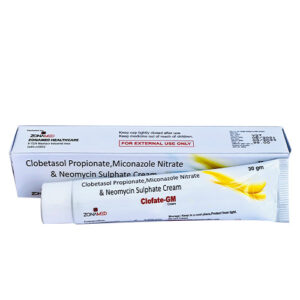LUCIZON
LUCIZON is a topical cream that contains luliconazole, an antifungal medication, and benzyl alcohol, which acts as a preservative. Here’s a breakdown of its uses and potential side effects:
Uses of LUCIZON (Luliconazole Cream)
- Fungal Infections: Primarily used for the treatment of superficial fungal infections such as:
- Tinea corporis (ringworm of the body)
- Tinea cruris (jock itch)
- Tinea pedis (athlete’s foot)
- Tinea versicolor (a fungal skin condition causing discoloration)
- Cutaneous Candidiasis: Effective against infections caused by Candida species.
- Dermatophyte Infections: Treatment of infections caused by dermatophytes.
Side Effects of LUCIZON
While luliconazole is generally well tolerated, some users may experience side effects, including:
- Local Reactions:
- Skin Irritation: Redness, itching, or burning sensation at the application site.
- Dryness or Peeling: The affected area may become dry or flaky.
- Allergic Reactions (rare):
- Rash: Hives or other skin rashes may occur.
- Swelling: Swelling of the face, lips, or throat (angioedema).
- Systemic Effects (rare):
- Although rare, systemic absorption could potentially lead to effects on the liver or other organs, especially in prolonged use.
Precautions
- Avoid Contact with Eyes: If the cream gets into the eyes, it may cause irritation.
- Pregnancy and Breastfeeding: Consult a healthcare provider before use during pregnancy or lactation.
- History of Allergies: Inform your doctor if you have a history of allergies to luliconazole or benzyl alcohol.
Conclusion
LUCIZON is an effective topical treatment for various fungal infections. While side effects are generally mild and localized, it’s essential to monitor for any adverse reactions and consult a healthcare professional if any severe symptoms occur. Always follow the prescribed dosage and instructions for use.







Reviews
There are no reviews yet.